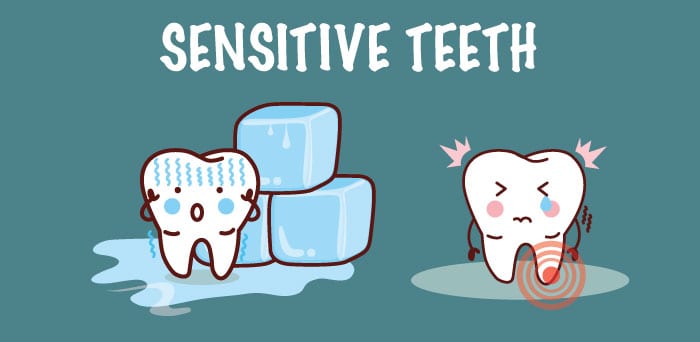
Most of us have experienced sensitive teeth at some point, especially when eating or drinking something hot or cold. Tooth sensitivity is caused when the gums pull back from a tooth to expose the soft layer of dentin beneath. Sensitive teeth are common, let’s explore some of the causes:
What causes tooth sensitivity?
Sensitivity in teeth can happen for several reasons:
- Tooth decay, cavities, and gum disease can all lead to painful sensitivity to hot or cold stimuli. Food and bacteria left on teeth create acids and cause demineralization, a weakening of tooth enamel. Thinning enamel can cause the tiny tubules connected to the tooth nerve to become exposed and cause tooth sensitivity.
- Improper brushing sometimes irritates the gums and can expose the tiny tubules on the tooth root surface that connect with the inner nerve, making teeth sensitive.
- Fractures in a tooth, or a crack in an existing filling can also increase sensitivity.
- Grinding your teeth may also lead to small fractures in teeth. If you are concerned about grinding your teeth, let us know. A special mouth guard can often help.
- Tooth-whitening may cause tooth sensitivity. Whitening treatments contain chemicals that can affect the structure of the tooth, so talk to your dentist before using these. Tooth-whitening is not recommended for children or teens.
How Do Braces Affect Sensitivity?
Whether your treatment plan includes traditional metal braces, clear braces, or Invisalign, braces work by slowly shifting the position of your teeth by small increments over time. This can cause some minor pain or discomfort, but if you experience discomfort that lasts more than a week, contact us for an appointment.
The best ways to prevent tooth sensitivity are good oral hygiene and regular check-ups with your dentist!





